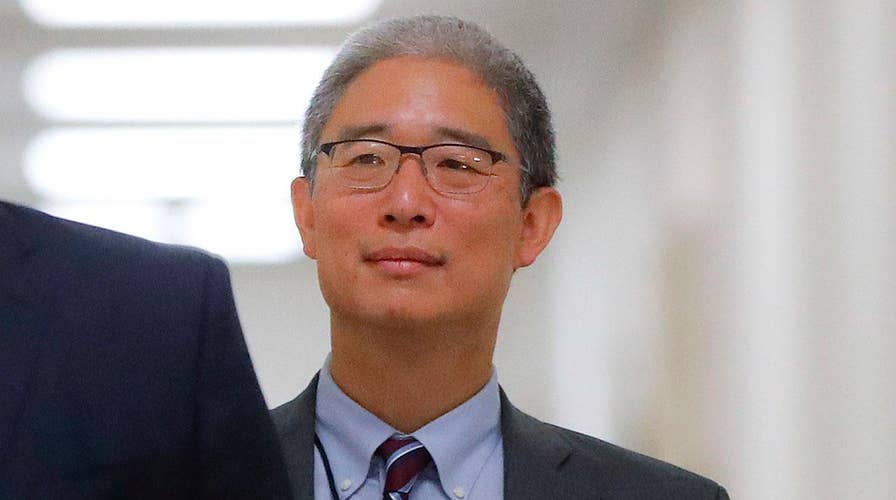Republicans grill Bruce Ohr on Trump dossier, Steele ties
House lawmakers question the Justice Department official on what the FBI knew about the dossier and when; chief intelligence correspondent Catherine Herridge details the testimony.
To believe most media descriptions of Justice Department lawyer Bruce Ohr, he is a nonentity, unworthy of the attention President Trump has given him. This is remarkable, given that Mr. Ohr spent Tuesday confirming for Congress its worst suspicions about the Federal Bureau of Investigation’s abuse of its surveillance and sourcing rules.
If Mr. Ohr is only now under the spotlight, it’s because it has taken so much effort to unpack his role in the FBI’s 2016 investigation of the Trump campaign. Over the past year, congressional investigators found out that Mr. Ohr’s wife, Nellie, worked for Fusion GPS, the opposition-research firm that gave its infamous dossier, funded by the Hillary Clinton campaign, to the FBI. They then discovered that Mr. Ohr had numerous interactions of his own with Fusion chief Glenn Simpson and dossier author Christopher Steele, and that he passed on information from these talks to the bureau. So the G-men were being fed the dossier allegations from both the outside and the inside.
This week’s news is that Mr. Ohr’s deliveries to the FBI came with a caveat. Congress already knew that Mr. Ohr had been aware of Mr. Steele’s political biases. In notes Mr. Ohr took of a September 2016 conversation with Mr. Steele, he wrote that the dossier author “was desperate that Donald Trump not get elected and was passionate about him not being president.” Congressional sources tell me that Mr. Ohr revealed Tuesday that he verbally warned the FBI that its source had a credibility problem, alerting the bureau to Mr. Steele’s leanings and motives. He also informed the bureau that Mrs. Ohr was working for Fusion and contributing to the dossier project.
Mr. Ohr said, moreover, that he delivered this information before the FBI’s first application to the Foreign Intelligence Surveillance Court for a warrant against Trump aide Carter Page, in October 2016. Yet the FBI made no mention of this warning in the application, instead characterizing Mr. Steele as a “reliable” source. Nor does the application note that a senior Justice Department official’s spouse was contributing to the dossier and benefiting financially from a document the FBI was using in an investigation. That matters both because the FBI failed to flag the enormous conflict and because Mr. Steele’s work product potentially wasn’t entirely his own.
Keep reading Kimberley Strassel's column in the Wall Street Journal.

